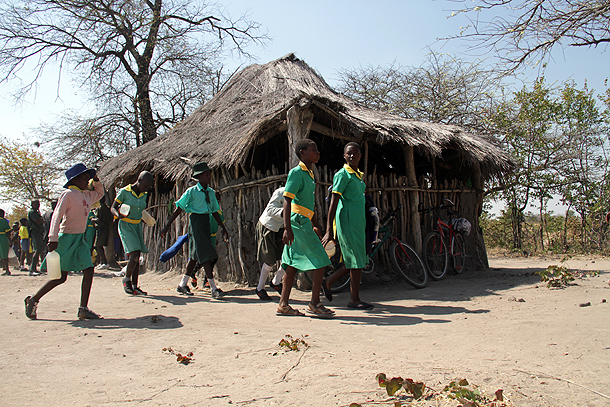
YESTERDAY we carried a story showing that child care and education in Zimbabwe’s rural communities is under serious threat and thousands of underprivileged children are facing a bleak future — an indication of a case of misplaced priorities by the government.
NewsDay Editorial
It is unimaginable that after 34 years of independence, children in rural Zimbabwe are still learning under a tree or thatched pole-and-dagga structures, sitting on the ground.

Suffice to say, 70% of the rural population have no good infrastructure for their children to learn from. The sad reality is that the rural communities, according to official figures, have annual school dropouts of over 300 000 children, a primary school pass rate of 28,9% as of last year, and a secondary school completion rate of 40%, which is in itself shocking to say the least.
But, it is thought that the school dropout ratio is worse in the country’s satellite schools especially in the resettlement areas.
As shown by the NewsDay story titled Buno Primary School: The struggle for education, the education infrastructure in most of the rural communities is in a deplorable state. If the school, just 200km from the capital Harare, is in such a disgraceful state, what does one expect for those deep in the countryside?
The case of the rural school child is a human rights issue, which any people’s government must seriously deal with for the benefit of its citizens.
The magnitude of neglect of the rural population is depressing as the Zanu PF ruling class concentrates on consolidating power over the majority poor.
- Chamisa under fire over US$120K donation
- Mavhunga puts DeMbare into Chibuku quarterfinals
- Pension funds bet on Cabora Bassa oilfields
- Councils defy govt fire tender directive
Keep Reading
Yet, Primary and Secondary Education minister Lazarus Dokora must be seized by the state of schools rather than self-flattery and review the State’s responsibility for education and such issues as how poor rural communities can become less dependent on their resources for the provision of basic education. Access to schooling must be improved to meet the constitutional obligation to provide basic education for all.
This must involve building more schools and classrooms to satisfy demand and expanding opportunities for secondary schooling.
Ultimately, education improvement is tied up with the general economic upliftment of the rural areas.
This will make infrastructure improvements easier to achieve, improve the educational potential of children and adults, help rural schools to attract and retain qualified teachers, and improve the health and general welfare of children.
Zanu PF and government must support moves such as the gesture by Gokwe-Nembudziya MP Justice Mayor Wadyajena to upgrade the state of schools in their constituencies to benefit the community.
MPs and Senators must be challenged to help communities by mobilising resources to build classrooms otherwise isn’t it the reason why they were voted for — to bring development to the people?
Rural people have long been the worst educated, least organised, and therefore least able to demand assistance through formal or informal structures. Yet their ability to contribute to decision-making is critical to the effectiveness of rural local government.
It is therefore government’s obligation to create access to resources and to assist with access to programmes that promote good use of resources through capacity building support.











